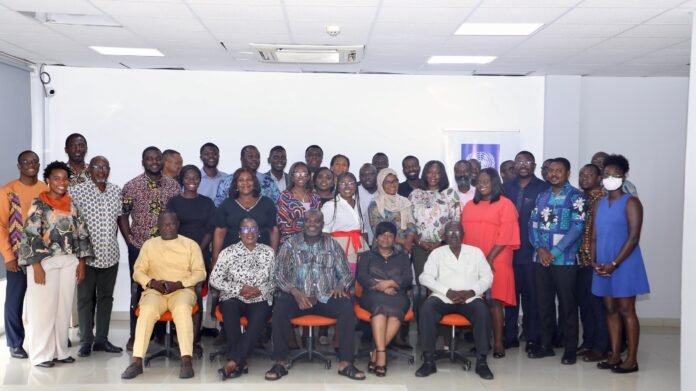Ghana has advanced preparations towards its third round of climate commitments under the Paris Agreement [Nationally Determined Contribution (NDC) 3.0] with the successful completion of its first Sectoral Technical Consultation Workshop in Aburi. The four-day consultation brought together representatives from government ministries and agencies, civil society organizations, academia, the private sector, development partners, and vulnerable groups to shape the country’s next climate action plan under the Paris Agreement.
The workshop follows the inception stocktaking exercise, which marked the official start of Ghana’s NDC 3.0 revision process. The stocktaking reviewed the progress of Ghana’s 2021 updated NDC (NDC 2.0), identifying achievements and gaps while laying the groundwork for the next iteration. It also outlined objectives for the revision process, including updating climate targets from 2030 to 2035, raising ambition, overcoming institutional and financial barriers, and ensuring alignment with the Sustainable Development Goals (SDGs).
At the stocktaking launch, Abdul-Razak Saeed, Head of the Environment Cluster at UNDP Ghana, reaffirmed UNDP’s support: “UNDP Ghana, together with the broader UN family, is working under the #ClimatePromise initiative to support Ghana’s government in aligning its NDCs with the 1.5°C target and SDGs. We reaffirm our commitment to producing comprehensive NDCs that are economy-wide, cover all gases, and adopt a whole-of-society approach.”
Building on this foundation, the Aburi workshop provided a platform for technical, multi-stakeholder dialogue on the content and priorities of NDC 3.0. The technical sessions featured sectoral working groups and presentations on new initiatives, highlighting the importance of aligning Ghana’s climate ambition with investment opportunities and financial strategies to unlock climate finance at scale.
Participants worked across sectors, including energy, water, health, agriculture, gender, and disaster management to share updates on the stocktaking assessment, initiate sectoral data collection for new NDC 3.0 actions, identify policy, technology, and financial gaps and align sectoral priorities with national development frameworks.
The inclusive design of the consultations ensured that voices from civil society, smallholder groups such as farmer and fisher groups, youth, women, and persons with disabilities were integrated into the discussions. This participatory approach reflects Ghana’s commitment to a whole-of-society NDC, responsive to both global climate imperatives and national development aspirations.
Speaking at the consultation, Felix Addo-Okyireh, Director and Head of Climate Change and Ozone Unit at the Environmental Protection Agency (EPA), stressed the importance of collective ambition and unity:
“As we take stock and create a new climate vision, our ambitions must reflect our togetherness and the mission that binds us. The revised NDC should not only raise our climate ambition but also reflect the aspirations of the Ghanaian people and provide a blueprint for survival and prosperity.”
The outcomes of the Aburi consultations will feed directly into the drafting of Ghana’s NDC 3.0. By combining evidence from the stocktaking exercise with the sectoral priorities and stakeholder inputs, Ghana is ensuring that its revised NDC is ambitious, inclusive, and implementable.
As the revision process continues, Ghana’s NDC 3.0 is expected to serve not only as a climate commitment under the Paris Agreement but also as a strategic blueprint for sustainable growth, resilience, and prosperity.








